What Is Artvigil 150mg?
Artvigil 150 mg is a wakefulness-promoting tablet containing armodafinil as the active ingredient. It belongs to the class of stimulant medicines used to improve alertness. The medication helps people stay awake and prevents episodes of excessive daytime sleepiness. It supports mental clarity and focus in patients affected by sleep-related conditions. Artvigil is the cost-effective generic alternative to Nuvigil, offering identical therapeutic benefits.
What Is Artvigil 150 mg Used For?
Artvigil 150 mg is used to manage excessive sleepiness associated with the medical conditions listed below.
- Narcolepsy: A sleep disorder that causes sudden, uncontrollable episodes of sleep during the day.
- Obstructive Sleep Apnea (OSA): A breathing condition that interrupts sleep and causes excessive tiredness during the day.
- Shift Work Sleep Disorder (SWSD): A condition affecting people who work at night or have irregular work shifts.
The medication helps restore alertness and improve focus during waking hours.
How Does Artvigil 150 Mg Work?
Artvigil 150 mg works by increasing dopamine levels in the brain. Armodafinil blocks the reuptake of dopamine, a neurotransmitter responsible for regulating mood, wakefulness, and concentration. Higher dopamine activity enhances communication between brain cells and helps sustain alertness. This mechanism improves focus, attention, and cognitive performance while reducing fatigue.
How Long Does Artvigil 150 mg Last?
Artvigil 150 mg can last for up to 13.5 hours and start working within two hours after oral intake, depending on metabolism and dosage. The medication ensures steady wakefulness throughout the day without affecting nighttime sleep when taken as directed.
What Is The Recommended Dosage Of Artvigil 150 mg?
The usual dose is one tablet of Artvigil 150 mg taken orally once a day. For narcolepsy or obstructive sleep apnea, take the tablet in the morning. For shift work sleep disorder, take it about one hour before the work shift starts. You can take the medicine with or without food, as prescribed by your doctor. Always take doses at the same time each day to maintain consistent effects. The dosage may vary based on individual response and medical advice.
What Are The Side Effects Of Artvigil 150 mg?
Artvigil 150 mg is generally well-tolerated. Some users may experience mild side effects such as:
- dizziness
- stuffy nose
- nervousness
- stomach upset
- aggression
- headache
- heart palpitations
- rash
- dry mouth
- loss of appetite
- agitation
In rare cases, severe side effects may occur. Stop taking the medicine and get medical help if you experience any serious symptoms listed below.
- depression or anxiety
- trouble breathing or swallowing
- shortness of breath
- trouble falling asleep or staying asleep
- chest pain
- skin rash
- hives
- swelling of face, itching
These effects are temporary and often improve as the body adjusts to the medication. Seek medical guidance if symptoms persist or if you notice unusual reactions.
What Are The Drug Interactions Of Artvigil 150 mg?
Artvigil 150 mg may interact with certain medications, supplements, or herbal products. Inform your doctor if you take the following medications.
- Antidepressants like diazepam or triazolam
- Antifungal drugs such as itraconazole or ketoconazole
- Seizure medications like phenytoin or carbamazepine
- Blood thinners such as warfarin
- Hormonal contraceptives (birth control pills)
- Immunosuppressants like cyclosporine
- MAO inhibitors used for depression (Nardil, Parnate, Marplan)
Your physician may adjust your dosage or suggest alternative treatments to ensure safe use.
How Should Artvigil 150 mg Be Stored?
- Store Artvigil 150 mg tablets in a cool, dry place at room temperature.
- Keep the tablets in their original packaging until use.
- Avoid exposure to heat, moisture, or direct sunlight.
- Do not store in bathrooms or near sinks.
- Keep out of reach of children and pets.
- Dispose of expired tablets safely according to local waste regulations.
What Is The Price Of Artvigil 150 Mg?
The price of Artvigil 150 mg lies between $80.00 – $435.00. It may vary by location, seller, and quantity. It is available through licensed pharmacies and reputable online stores like Fullhousepill, which offers affordable options and genuine products. Always check the packaging and expiry date before purchase.
FAQs
Is 150 mg of armodafinil too much?
No, 150 mg is the standard recommended dose for most adults. Your doctor may adjust it based on your health condition and response to the treatment.
Is armodafinil a narcotic drug?
No. Armodafinil is not a narcotic. It is a wakefulness-promoting medication classified as a Schedule IV controlled substance due to its low potential for dependence.
Will armodafinil show on a drug test?
Yes. Armodafinil and modafinil have a long half-life of 12–15 hours, meaning they stay in your system for up to 15 hours. Their metabolites may remain detectable for longer, depending on metabolism and the type of drug test used.
Is armodafinil safe during pregnancy?
Use of armodafinil during pregnancy should be decided by a healthcare provider. Discuss the potential benefits and risks before starting therapy.
How addictive is armodafinil?
Armodafinil has a low potential for addiction when used as prescribed. However, because it increases dopamine activity, the risk may be higher in people with a history of substance use disorder. It is a Schedule IV controlled substance and may cause withdrawal symptoms such as shaking, sweating, or confusion if stopped suddenly after long-term use. Always follow medical advice for safe discontinuation.
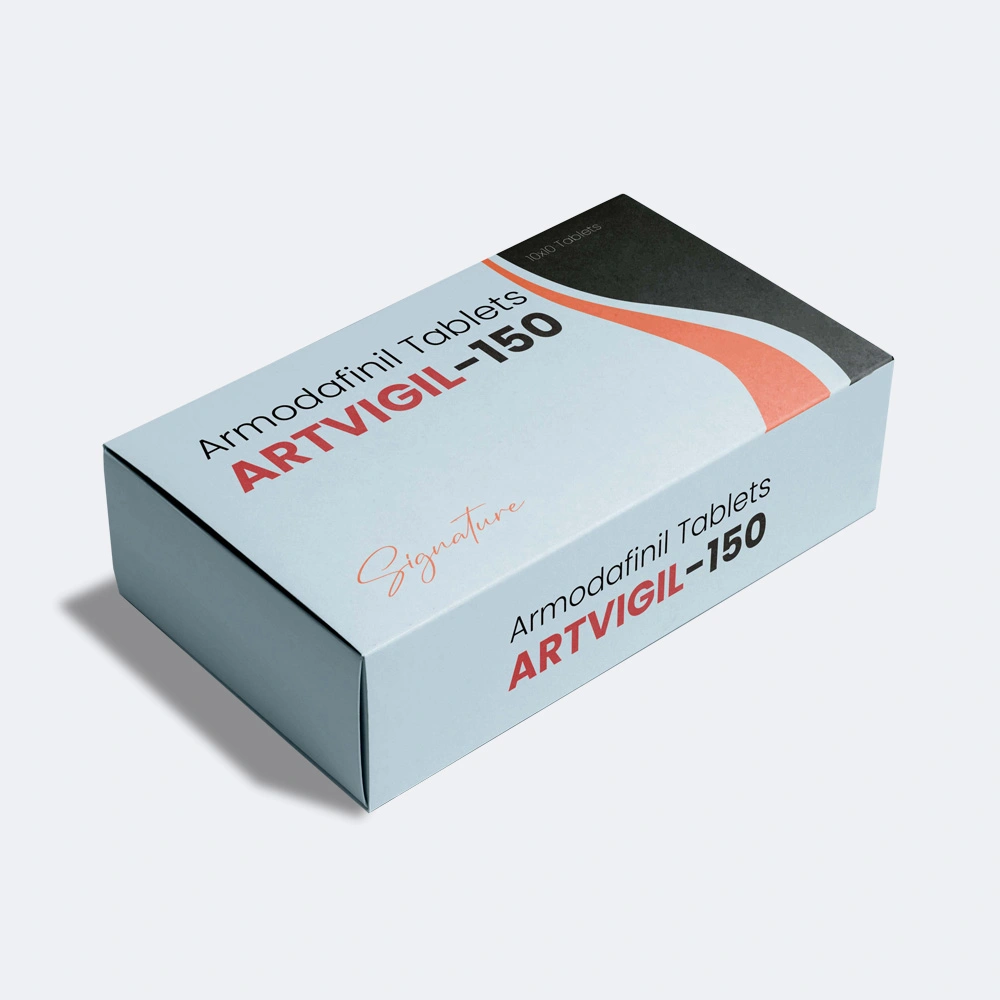

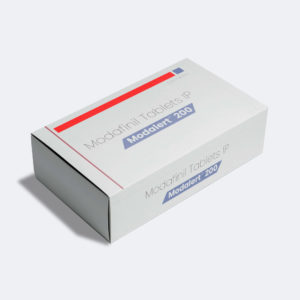
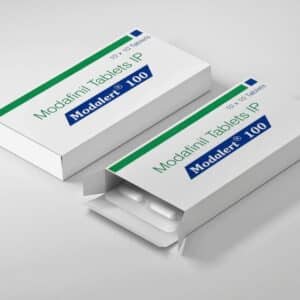
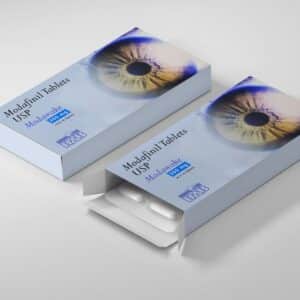
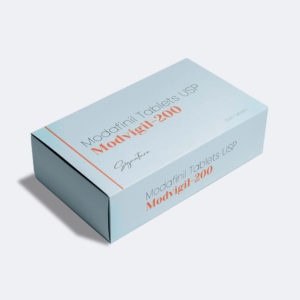
Jodi Cress –
Artvigil 150 mg helps me stay awake and focused without feeling overstimulated.
Elizabeth Gunn-Baumann –
Artvigil 150 mg has been my go-to for focus and energy. Works exactly as described, and I experience zero crashes. Fullhouse Pill always delivers fast, and their customer service is great.